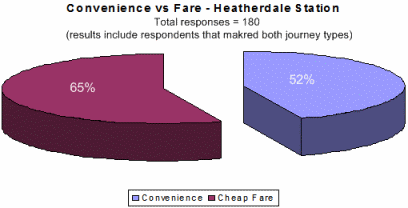Tonight’s Eastern Transport Coalition meeting included a presentation on myki, Melbourne’s new ticketing system, as well as providing an update on the rollout of the Monster Petition.
Myki is due for introduction by the end of the year and will replace the paper-based Metcards with a plastic smartcard that will deduct public transport fares from credit established on the account.
There are currently no plans to alter Melbourne’s public transport fares with the introduction of myki and any fare reforms will need to be considered by the State Government. One of the touted benefits of myki is its flexibility and fare reforms would further provide equity across Melbourne’s public transport system.
The Eastern Transport Coalition’s monster petition was successfully launched at Monash University and will be available within each of the member councils.
The petition is currently located at the City of Whitehorse and is scheduled to arrive in Maroondah in time for Maroondah Festival in November.
The meeting also discussed the bus service reviews and will be calling on the State Government to ensure that the final reports of the review are released and that the findings, including frequency and operating span improvements, are quickly implemented.
